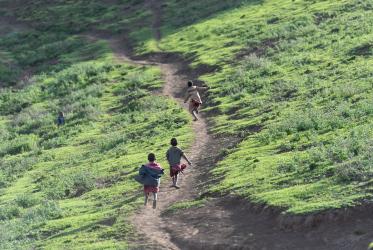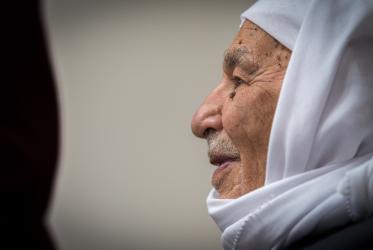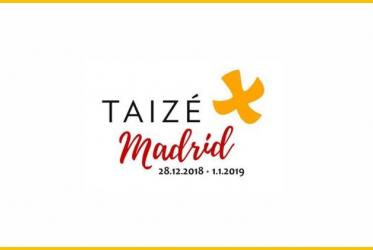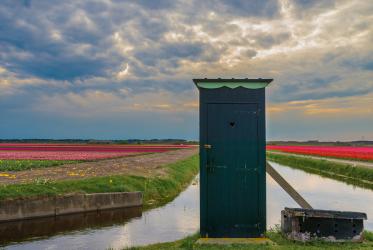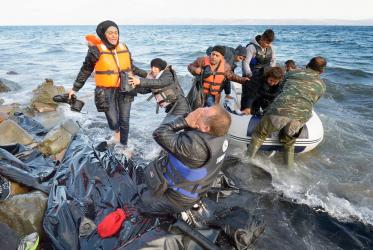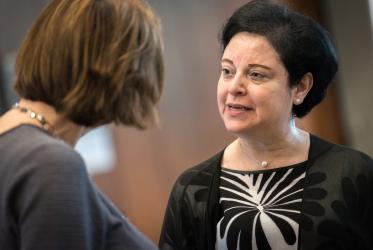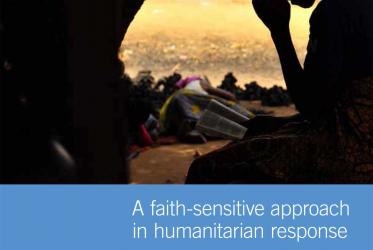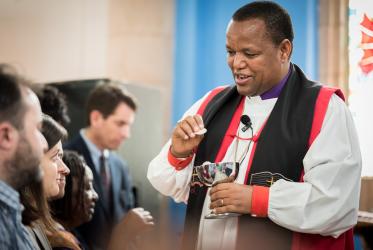Displaying 81 - 100 of 194
On the journey to HIV – bridging gaps, debunking myths
21 February 2019
WCC sends greetings as Taize youth reflect on hospitality
27 December 2018
Fr Alexi - a peacemaker in Syria
21 December 2018
“When Nature Calls”…WCC joins in commemoration of World Toilet Day
19 November 2018
WCC Eco-School encourages youth to become eco-ambassadors
08 November 2018
How can you help refugees?
11 October 2018
Arusha offers vibrant and colourful worship life
12 March 2018
